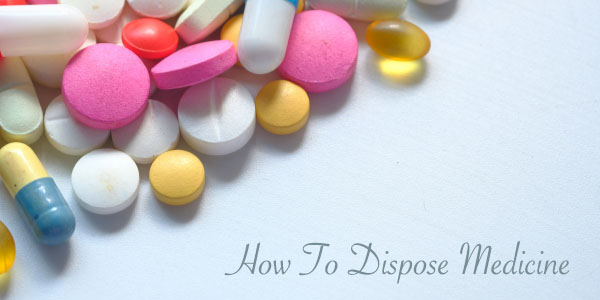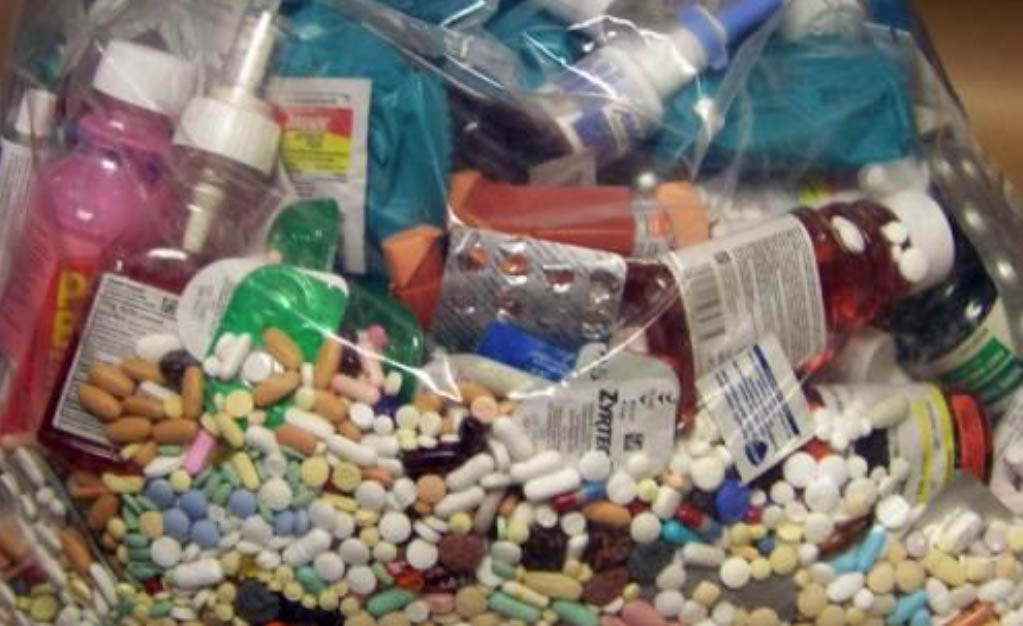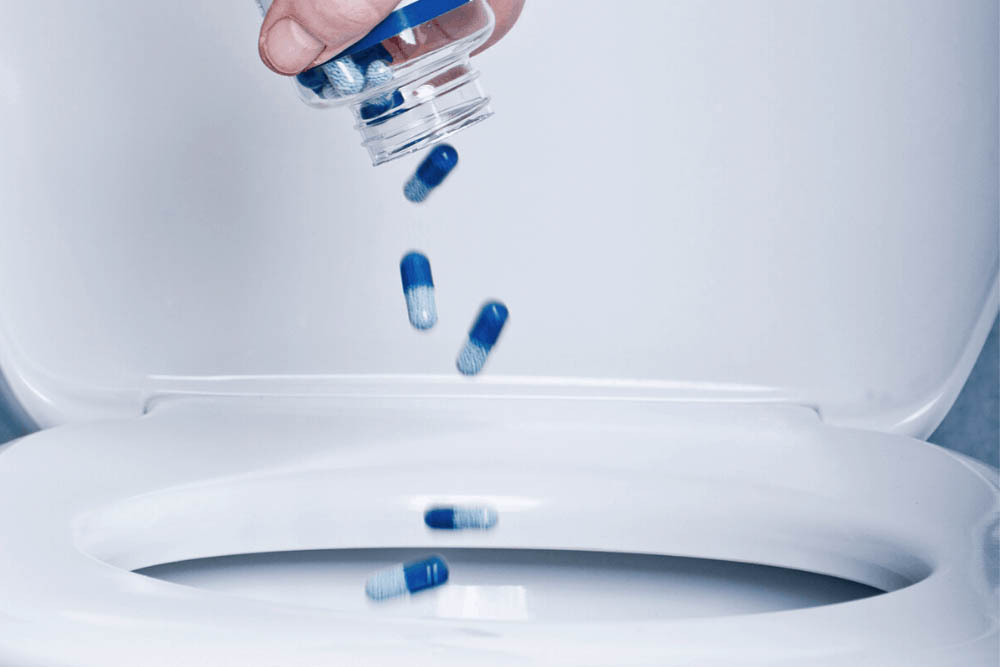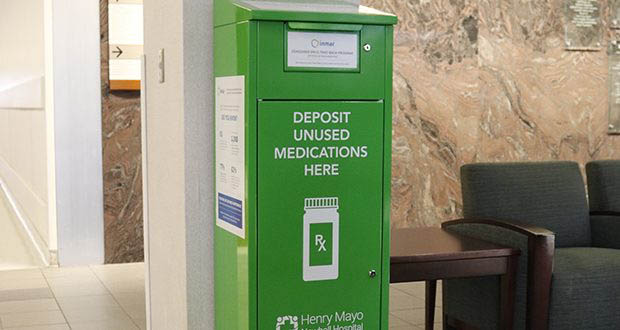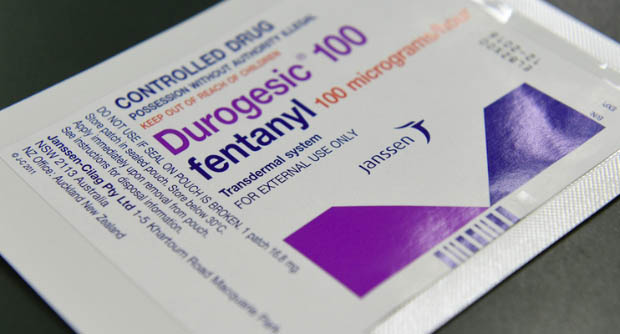It is very easy to accumulate a lot of pills in your medicine cabinet, some you will have stopped taking because you no longer need them, and others might have affected you in ways you didn’t like. But whatever the reason, you need to dispose of them carefully. While it is easy to simply throw expired pills in the trash, or flush them down the toilet, this could be a mistake. Before you get rid of your meds, there are a few things you need to know.
Contents
Medicine Disposal
Reasons you should dispose of your medicine when no longer needed include:
- Prevents you from taking the wrong medicine accidentally
- Stops you from taking out-of-date medicine
- Helps avoid poisoning children or pets
- Deters misuse
While there are plenty of good reasons to get rid of medicine when it’s no longer required, you have to be careful with how it is disposed of. If you carelessly discard medicine in the trash or down the toilet, it could find its way into drinking water.
If your home has a septic tank, any pills, whether they are over-the-counter or prescription, could seep out of the tank and into the groundwater. Septic tanks are designed to separate liquid and solids, allowing the liquids to enter the surrounding earth. If you flush your meds, this is likely to be their fate.
Even if your home is connected to the municipal sewage system, this is still a problem. Pills that are flushed by residents might not be removed during the wastewater treatment process.
Despite continual improvements with wastewater treatment plants, even in 2022, this is something you need to be cognizant of. While the tablets themselves will be gone, the chemicals can still be present in the water after treatment.
As you might imagine, having chemicals present in prescription drugs mixed in with drinking water could be a problem. While it will be heavily diluted even if the wastewater treatment hasn’t removed it completely, this could potentially affect other people. These chemicals could gradually build up if present in the water in significant amounts and cause untold damage.
These chemicals can also enter rivers and lakes, doing harm to the environment and the animals that live in it. Because of all these potential problems, simply flushing the drugs might not be the best solution.
Flushing Meds
While it is easy to assume that flushing away medications is fine, it isn’t necessarily what the experts say for all meds. There are certain medicines that concern experts even in small amounts being found in surface water, like rivers and lakes, as well as drinking supplies.
Drug residues already enter groundwater and water treatment facilities when they pass through the bodies of the people who have taken the medicines naturally.
A large number of drugs do not fully become absorbed in the body when they are taken by the patient. The fact that these medicines do not metabolize in the body means that they enter the environment through septic systems and wastewater treatment facilities.
For this reason, both the FDA and the US Environmental Protection Agency take these things seriously. However, to a large degree, these concerns are theoretical. There hasn’t been any research published that confirms flushing certain medications has any real measurable effect on the environment or the water system.
However, when there are concerns about drugs entering the water system, it is only certain medications and not all. Other meds have the recommendation of actually being flushed if better options aren’t available.
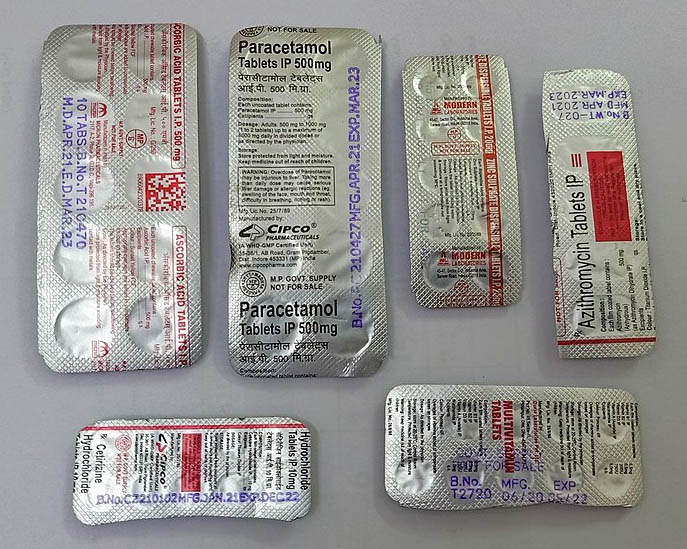 Despite the risks of flushing meds, it is still recommended for some. However, the FDA, keen to show that this is the best option for some meds, has released a paper evaluating the health and environmental impact of flushing medication.
Despite the risks of flushing meds, it is still recommended for some. However, the FDA, keen to show that this is the best option for some meds, has released a paper evaluating the health and environmental impact of flushing medication.
The FDA considers the known risks of the active ingredients they recommend flushing is minor when compared to the potential harm that could be avoided. Getting rid of the medication on their flush list is more important than the potential risk caused by the pills entering the water system.
They say that only a negligible risk is created when you choose to flush the more dangerous types of medications prescribed. Though, if you can, take back is a better option to avoid any risk to the environment and the water system, while still removing the risk in your home.
Drug Take-Back Programs
The Drug Enforcement Agency has its own prescription drug take-back day across the country. The DEA National Prescription Drug Take-Back Day operates in communities, and as the name would suggest it’s nationwide.
Besides the DEA National Prescription Drug Take-Back Day, local law enforcement might be able to provide you with information about community efforts for prescription drug take-back. There could also be a DEA-authorized collector working in your community to deal with prescription medications.
You might also find your local pharmacy offers this sort of program as well. Drop-off boxes for prescription medicine is available in some pharmacies. Mail-back programs might also be offered if there isn’t a local drop-off program.
Disposing of Your Medicine in Your Home
If taking your drugs back isn’t an option that is available easily to you, there are ways of disposing of your drugs in your own home, though it depends on the drugs concerned.
- Flushing meds
Some medications are considered to be very dangerous to others and need to be flushed as soon as they are no longer required.
Drugs in this category include pills that contain substances like fentanyl, methadone, morphine, oxycodone, and more. If you are not sure if your meds should be flushed immediately, you can check the FDA’s flush list.
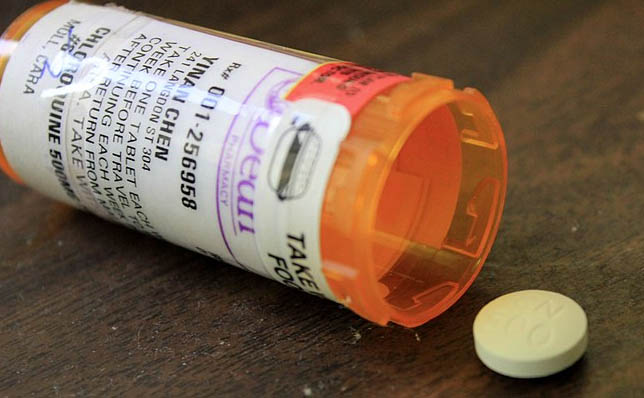 Typically medicines on that list are those that are misused or abused with the potential to cause death if they are used incorrectly. There can be serious consequences that include death for adults or children who take and misuse or sometimes even touch the meds. These methods can also be very dangerous to pets.
Typically medicines on that list are those that are misused or abused with the potential to cause death if they are used incorrectly. There can be serious consequences that include death for adults or children who take and misuse or sometimes even touch the meds. These methods can also be very dangerous to pets.
If there isn’t a take-back program available to you and you are no longer taking your meds that have the potential for misuse, flushing them is the best option.
If your medication is on the flush list, the responsible thing to do is to do just that. It can prevent a potential nightmare from occurring with long-lasting or permanent ramifications. However, using a take-back program is a better option than flushing, but flush if that isn’t available. But having said that, not all medication should be flushed.
- Throwing meds in the trash
Most medicines can be thrown in the garbage if take-back programs are not available. Pills on the FDA flush list should not find their way into the household trash for safety.
When throwing medication in the trash, there are a few things you should do. The pills should be removed from their original container and mixed in with something that you can sit undesirable, like cat litter or dirt. This makes the pills less likely to be consumed by children either accidentally or on purpose. It will also mean that they are missed by anyone who is looking for drugs in your trash.
The pills you are disposing of and whatever you are mixing them with should be by placing a container you can close so that they don’t leak or spill out.
The now-empty packaging for your medications needs to have your details removed before that too is thrown away. This is to protect your privacy should the container not remain in the trash.
Disposing of Specific Drugs
Some drugs need to be dealt with very carefully to avoid problems, let’s look at a few of them:
- Fentanyl patches
Fentanyl is a powerful opioid that can be very dangerous to people to whom it is not prescribed. The patch provides very strong pain relief through the skin, but even if it has been used, there can still be fentanyl on the patch.
For this reason, the treatment includes instructions to flush any remaining unused and unneeded fentanyl patches.
- Inhalers
People suffering from asthma or other breathing issues might use an inhaler. But disposing of these medications might be different to most other treatment types. Since the inhaler could be dangerous if punctured or disposed of in a fire, other methods need to be taken.
For advice, contact your local recycling facility so that your inhalers can be handled appropriately following local laws and regulations.
Deciding How to Dispose of Your Unneeded Prescription Medicines
The first and best option should be using a take-back service to get rid of your unneeded or expired medications. If there isn’t one convenient for you, there could be a mail-back option.
If your medicine is on the flush list from the FDA, then you will need to flush it if takeback isn’t available. If the pills are not included on the FDA flush list, you can dispose of them in the trash, taking the necessary precautions we already covered.
Though all of this might seem like an extra hassle, dealing with expired or unused medicine in 2022 is important for everyone’s safety.

